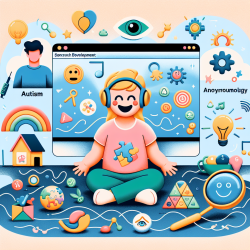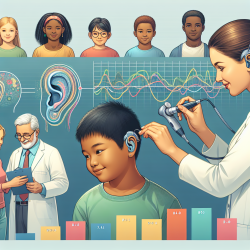Empowering Change: Non-Specialist Interventions for Children with Autism
In the realm of Autism Spectrum Disorder (ASD), early intervention is crucial. With the rising prevalence of ASD diagnoses, there is an urgent need for effective, accessible, and affordable interventions. A recent study titled A Short Commentary on Non-specialist-mediated Interventions for Children with Autism Spectrum Disorder provides valuable insights into non-specialist-mediated interventions that can be implemented by parents, teachers, and peers.
The study emphasizes the importance of utilizing support systems within the child's environment to deliver interventions, which can significantly reduce costs compared to traditional specialist-led therapies. For instance, the Play and Language for Autistic Youngsters (PLAY) project costs approximately $3,500 to $4,500 per year per child, compared to $40,000 to $80,000 for interventions delivered by mental health professionals.
Key Non-Specialist Interventions
- Adaptive Response Teaching: This approach focuses on parent-mediated interventions to improve social communication and sensory regulation. By involving parents in the therapeutic process, children can receive consistent support in their natural environment.
- SENSE Theatre: This intervention uses theatre-based activities to enhance social skills and reduce anxiety in children with ASD. Engaging children with typically developing peers in role-play and character-building activities can significantly improve social competence.
- Telehealth Parent-Mediated Intervention: Programs like the Improving Parents as Communication Teachers (ImPACT) Online offer a cost-effective telehealth option. Parents can learn and apply intervention strategies at home, with or without therapist assistance.
- Joint Attention, Symbolic Play, Engagement, & Regulation (JASPER): This strategy encourages naturalistic interactions between parents and children, promoting joint attention and engagement through play.
- Qigong Sensory Treatment: Based on Chinese medicine, this intervention uses massage techniques to improve sensory and self-regulation in children with autism.
Implications for Practitioners
For practitioners, integrating these non-specialist interventions into their practice can enhance outcomes for children with ASD. By training parents, teachers, and peers to implement these strategies, practitioners can extend the reach of their services and provide ongoing support in the child's everyday environment.
Moreover, these interventions offer a viable solution in contexts where resources are limited, such as in developing countries or underserved communities. By leveraging existing support systems, practitioners can help bridge the gap in access to quality care for children with ASD.
Practitioners are encouraged to delve deeper into the research and consider how these interventions can be adapted and implemented in their own practice settings. Continuous professional development and collaboration with families and educators are key to maximizing the potential of these strategies.
To read the original research paper, please follow this link: A Short Commentary on Non-specialist-mediated Interventions for Children with Autism Spectrum Disorder.










